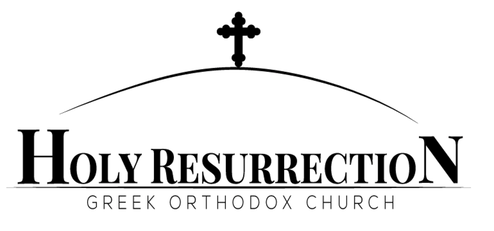To compare that to where we are now, with an average of 85 people a Sunday is quiet different. For those who have been around Holy Resurrection for a while, even for just a year, you have noticed the ever growing amount of one time visitors, new inquirers and those following the path to the catechumenate and entry into the Church. This of course is a huge blessing and it fills me with joy to see more and more people discovering the fullness of the Christian faith in the Orthodox Church. This is a phenomenon that is not only happening at Holy Resurrection but all across Orthodoxy in North America.
This begs the hard question however, are we ready for this growth? I know personally it has been a stretching experience for me as I've had to make more time to meet with folks interested in Orthodoxy and extend a welcoming hand to them in this very foreign land. As a community we've had to flex our 'extroversion muscle' to get out of our comfort zones to welcome new people and make new connections with those seeking the fullness of the faith. We have (and will continue) to experience the blessed growing pains of having to sit closer to each other during services and make new accommodations in the chapel for more kids. And collectively we have to lovingly integrate new people into our community and be open to seeing how God will grow our community in new ways.
These are not easy things for anyone as they require us to sacrifice for the stranger and the 'other'. Yet our faith is not about being comfortable or having things 'your way' like the Burger King advertisement says. It is about a continual offering of ourselves to our Lord and allowing whatever He puts before us to transform us to love like He loves. It is about our transformation to be Christ-like in ways that we didn't think (or don't want) to be transformed.
Fr. Daniel Triant, a good priest friend of mine in Spokane, recently wrote an article for our metropolis that summarized this new reality we face very well. I would like to conclude with an except from his article that I pray will be helpful for us all as we continue to grow the Church, ourselves and Christ's love.
The Church didn’t start with catechism classes. It started with the experience of Christ. The people gathered together and were fed by Him first, so that they could go forth and share with the world what they’d been given. As the Church grew over the centuries, the Holy Spirit revealed more to the faithful, and a more robust catechism was necessary. But this was never a replacement for the fundamental action of the Church – to worship, receive Him, and give that to those who don’t have it.
I was born into an Orthodox family who received the faith for generations. I grew up knowing what to do because everyone around me, in my family and my parish, knew what to do. I didn’t always know the “why,” but the experience was deeply rooted. We crossed ourselves a certain way, we prayed certain prayers in our home, we fasted, and we went to Church at odd times according to the rest of the world. The many things we sometimes take for granted that inform our faithfulness were inherent.
People new to the faith have none of this, except what they may have read in a book or an article on the internet (perilous as that may be). What class can we offer that teaches them what we often refer to now as “the fullness of the faith?” They have no family to learn from. Who will teach them the experience we learned from our families? All of us! Every one of the faithful.
We may not all be theologians, but we all have an experience of Christ. The Holy Spirit we have inside of us is the same Holy Spirit that rested on the disciples, the same Holy Spirit that brought them together to worship and experience Christ. It is incumbent upon us to grow deeper connection in our own lives, so we might offer it to all of those seeking the knowledge of the Truth, and that our Lord continues to add daily to those who are saved. (read the full article HERE)
In Christ,
Fr. Steve


 RSS Feed
RSS Feed